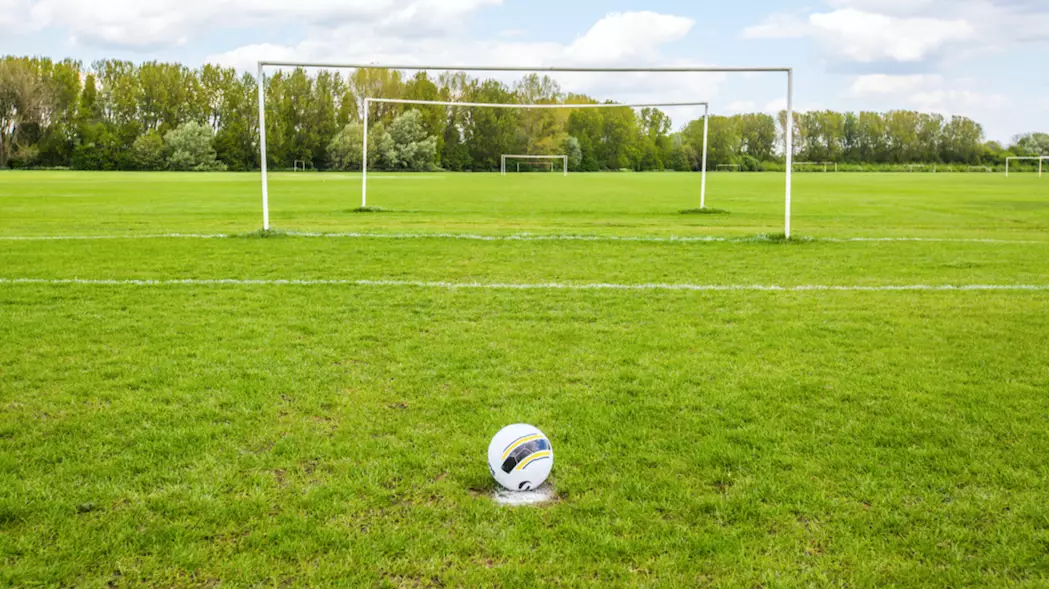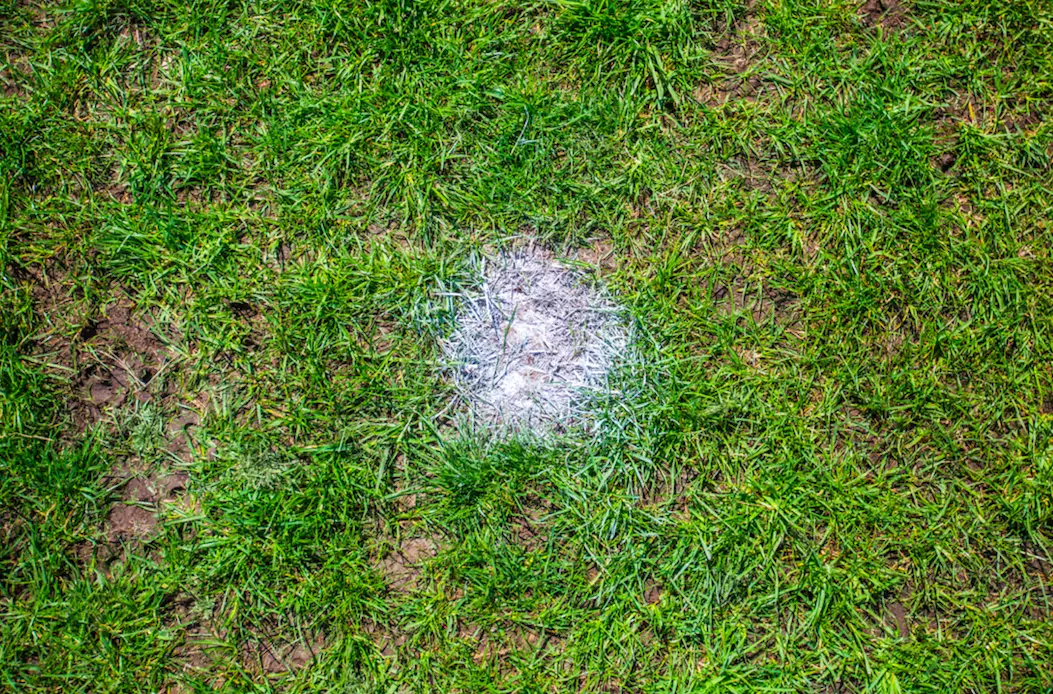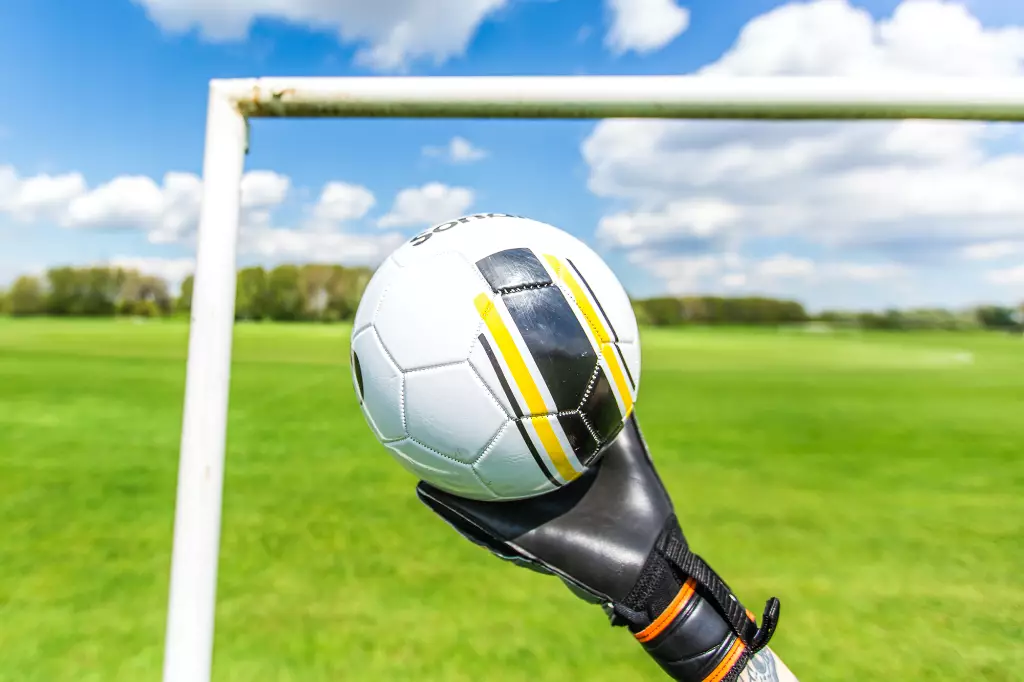
SPORTbible, in partnership with Sure, investigates how to handle football's ultimate pressure moment: the penalty.
Barcelona were 2-0 up and cruising, the Etihad Stadium quiet and glum. Manchester City were limping out of the 2015 edition of the Champions League once more. No amount of money invested by their billionaire owners had made a blind bit of difference.
Then, a glimmer of hope. Sergio Aguero fired home in the second half to make it 2-1. They were back in with a shot of winning the last 16 tie. Until they weren't again.
A last-minute penalty gave Lionel Messi a hammer and nail to close City's coffin for good.
The world knows what Messi is capable of. The Argentinian will most likely be remembered as the greatest player to grace the Beautiful Game once all is said and done. Statistical research conducted in 2014 into his output reached a simple but astonishing conclusion; Lionel Messi is statistically impossible.
'It's not [statistically] possible to shoot more efficiently from outside the penalty area than many players shoot inside it,' the article notes. 'It's not possible to lead the world's forwards both in taking on defenders and in dishing the ball to others,' it adds. But this is Messi and he makes the impossible possible.

So, a free shot from 12 yards should be a walk in the park. Messi stepped up, purposefully fired his shot to the right of Joe Hart's goal. And he missed. The rebound came his way. All he had to do was nod home for redemption. He missed again. Some said the pressure had gotten to him.
Messi's record from the penalty spot is not befitting of the world's greatest, not by a long shot. The Barcelona ace has missed no fewer than 23 in his career; something is going on in the alchemy between instinctive open play and structured spot-kicks that turns Messi from other worldly to decidedly human. And he's certainly not the only one.
Penalty shootouts are not a lottery. Extensive research and data analysis into spot-kick taking has moved understanding of what is going with players who step up to the next level. Spanish economist Ignacio Palacios Huerta has established himself as the Godfather of penalty analysis, logging a database of thousands of penalties to identify trends that can be the difference between winning and losing on the biggest stage. Chelsea used his research in their Champions League final shootout against Manchester United in 2008.
The research identified that United goalkeeper Edwin Van der Sar had a habit of diving to his right side. So Chelsea kicked exclusively to his left and it worked perfectly... until John Terry slipped and United went on to win.
But while understanding of penalty shootouts has changed, there is something that no amount of data analytics can tweak. The notion of pressure.
'Predominantly the changes that happen when a player steps up to take a penalty is you'll see an adrenaline spike,' says Danny Holmes, lecturer in Sport Exercise Science and Sport Psychology at Middlesex University's London Sport Institute, who has worked with elite footballers and clubs to help improve their performance.

'That will increase heart rate, start stronger heart contractions and prompt blood to be shifted from the digestive organs out to the muscles - from an evolutionarily point of view that will help a person get out of a dangerous situation.
'You'll also see some attentional shifts. For example you will focus less on your peripheral range. Then there's increased respiration and perspiration.'
These responses, hardwired from thousands of years of evolution, are designed to help humans escape and survive dangerous situations. One small problem though; your body screaming at you doesn't make taking a penalty very easy at all.
Danny explains: 'Pressure these days is a self-made construct based on situations. Survival is an evolutionary benefit of any stress state. We can face threat or flee from it. It is a territorial, ancient trait to keep us alive.
'Now, that reaction is mostly redundant in the modern world. However the individual who is taking the penalty will make conscious or subconscious calculations; now it is about ego threats. Threats to identity or social threats like the fear of looking foolish. That still initiates the same fight or flight.'
The numbers back the claim that fear is a key driver in penalty shootouts, too. Players on average scored around 60 percent of penalties when missing would result in a loss, but 92 percent when the penalty would result in a win. Studies also show that a negative pattern of experience, like losing repeatedly, in the past can impact the future. England are a fine example of just that.

England's inglorious past is so littered with failures from 12 yards it has become a national obsession. From the 1990 World Cup to Euro 96 and the '98 World Cup, England's collective psyche is permanently etched with failure.
The image of current England boss Gareth Southgate stepping up to take a crucial penalty against Germany in the semi-final of Euro 96 was beamed to millions around the world. He looked ashen, nervous and ill-prepared to have a nation's expectation hoisted upon his narrow shoulders. More than 23 million people, almost half the country's population then, watched him step up and miss.
'One thing people are impacted by is the previous outcome of previous shootouts,' says Danny. 'There's a vicious cycle people can be engaged in and they have a belief they are more likely to lose because of what has gone before.'
Southgate's miss effectively marked the start of England's repeated penalty failure, because although, of course, they had gone out of the 1990 World Cup in the same fashion, his was the one that established the 'pattern of experience'. The pressure of England players knowing they have lost in the past means they are more likely to lose in the future.
Since the '96 loss, England have gone on to lose five straight shootouts in all tournaments, including against Portugal in 2006 and Italy in 2012.
The nature of English football fans' expectations and the media coverage means the pressure is turned up to 11 for the Three Lions at tournaments. 'My mindset was that I just cannot make a single mistake,' former player Kieron Dyer said recently of playing for England and their so-called 'Golden Generation'. A closer look shows the direct impact that's having on players in shootouts.

'There's some interesting research around England,' says Danny. 'If you look at Germany, they scored 85 percent when the goalkeeper guesses the right way. For England it goes down to 50 percent. So they are not as accurate in that pressure moment. That we think is a shift in a couple of things. First England players have a history of responding a lot quicker to the whistle.
'When the whistle goes, it shows that one of the coping mechanisms is to get out of the situation by taking the penalty as quickly as they can. That decreases their chance of being successful. More successful clubs and players who wait for more than a second, they increase their chance of being successful by taking control of the situation. It gives them a chance to enact a coping mechanism, like breathing or visualisation, which will allow them to be successful.
'Another thing we have seen in the research is that people's attentional focus can shift. We talk about rest states and challenge states. There's no physical threat but in a penalty sense the threat is the goalkeeper. Under increased anxiety, it has been shown, players will look at the goalkeeper more often than into the spaces, and for longer. And that is probably why the ball is going closer to the goalkeeper, because they have more of a threat related strategy.'
Fortunately for England, who fly off to compete in the 2018 World Cup this summer, there is hope. Developments in sport science and psychology are helping to drive forward change and understanding of pressure situations in sport. The men's senior team will employ psychologists to help their mental state after Martin Glenn, the FA's chief executive officer, admitted they had a "brittleness" during their failed Euro 2016 campaign.
Changes aren't being made just at the top either; the England U21 team hired Rebecca Symes for the 2017 European Championships. The good news? After they failed to progress from the group stages in 2015, the made it to the semi-finals. The bad news? The lost to Germany on penalties. No matter what the progress, some things never change.
Dr. Rhonda Cohen is the head of the London Sport Institute and she believes that while athletes won't ever be able to fully free themselves of the effects of pressure, they are more equipped than ever before to succeed.
'Personality is something you are born with,' Dr. Cohen explains. 'Predisposed genetic traits make us behave a certain way. The ability to calculate risk is a key trait; some people may be more predisposed to stepping up and take a penalty. But while you can be born with it, you can coach how to overcome adversity as well.
Danny continues: 'One of the best places to start is the 'do your best strategy'. That's quite a liberating thing to learn - that an athlete can only really do their best. That has to be good enough.

'The challenge is to get athletes to accept that fact and play within that belief. So not overthinking consequences - that's one of the fundamental things I teach. The other things I teach are specific coping mechanisms to deal with the pressure. To help them expect that pressure but say ''that's OK''- to interpret some of the physiological signs of pressure as them being prepared for their performance, that seems to have a positive impact on their play.'
Legendary basketball coach Phil Jackson, who took Michael Jordan's Chicago Bulls to numerous NBA Championship wins, was a keen exponent of meditation and visualisation techniques as a coping mechanism for pressure; something more and more football clubs are doing too.
'When I worked with one football club, we started doing meditation groups,' Danny says. 'It started slow but by the end I had a large group of players who were interested in learning and taking part'.
That may well because, in the age of social media and the instant knee-jerk reactions of the 24-hour news cycle, athletes are more exposed to criticism and therefore pressure than ever before.
'These athletes may have remarkable performance traits where they can thrive under pressure, says Dr. Cohen. 'But under the surface they may be dealing with clinical depression or mental health problems. They are only human'.
So, while Messi may be a genius on the pitch, he, like the rest of us, is susceptible to feelings and thoughts of failure.
And, if there's one thing sports psychology has taught us about the Barcelona man, the England football team or indeed anyone else stepping up to take a penalty from 12 yards, the outcome is determined less by a player and what he is capable of with his feet, and more by what's happening between his ears.
Advert
WORDS: WILSON CRANFIELD
PHOTOGRAPHY: JAKE LEWIS
Featured Image Credit: